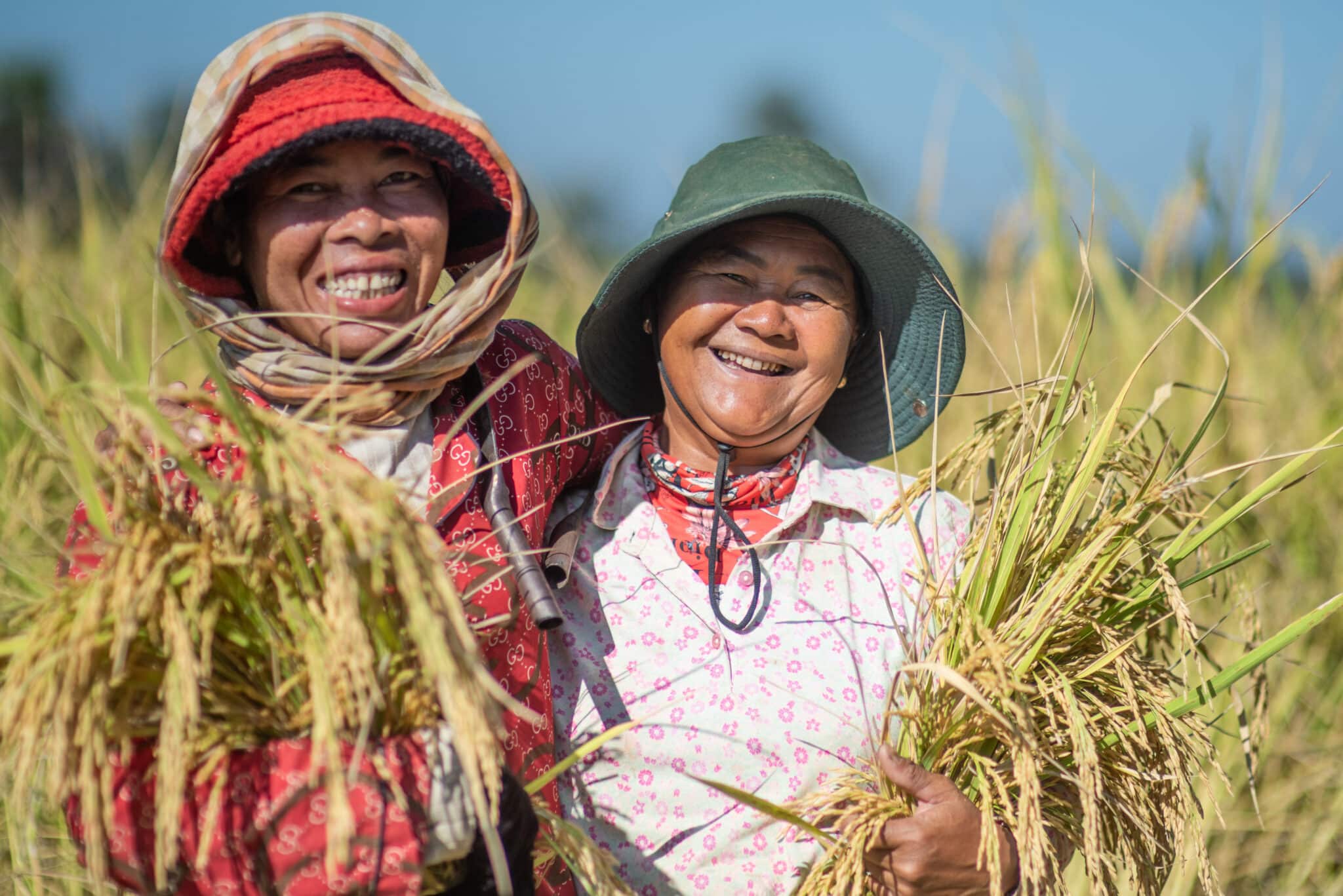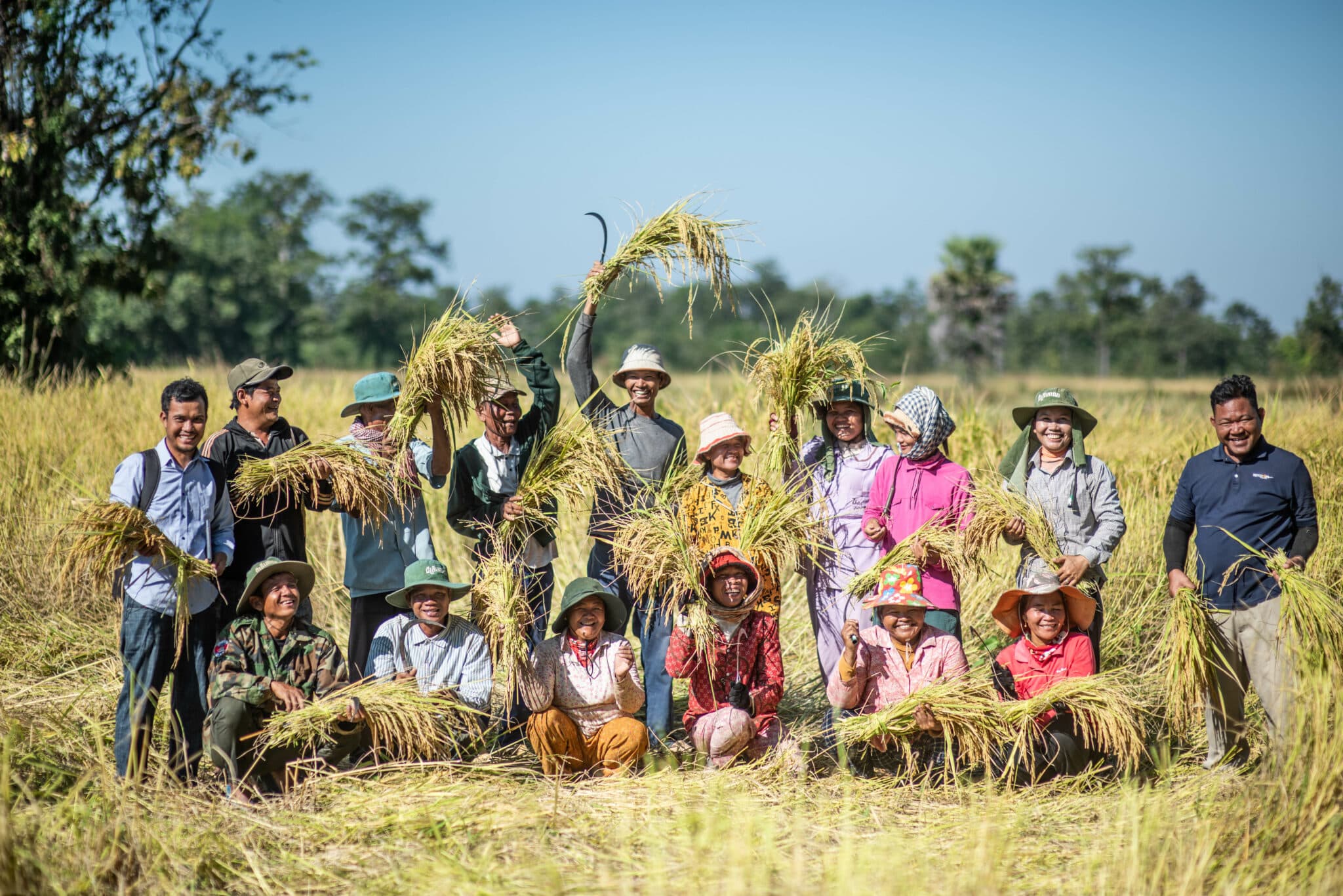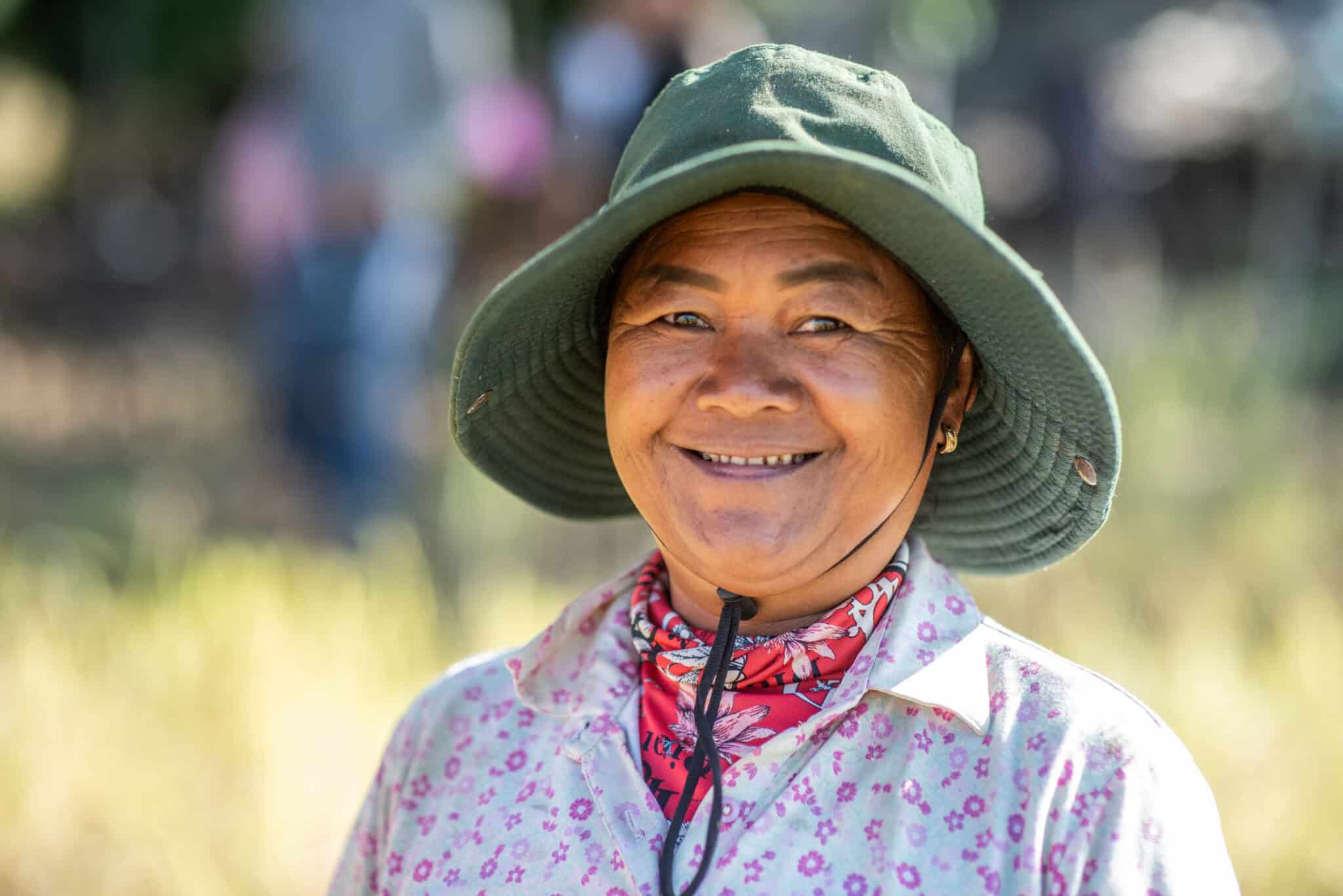Salem’s Journey from Danger to Prosperity
In Cambodia, the legacy of landmines continues to threaten lives and livelihoods, particularly in rural areas where agriculture is the cornerstone of survival. The “Minefields to Rice Fields” project, a groundbreaking initiative by APOPO in collaboration with CordAid, with support from UK’s Foreign, Commonwealth, and Development Office (FCDO), is changing this narrative. Launched in May 2023, the project aims to clear over 3.8 million square meters of mine-contaminated land, transforming it into safe, productive farmland. By integrating mine clearance with agricultural training, the project is empowering farmers, boosting their incomes, and securing a brighter future for their families. Below is the story of Salem, a farmer whose life has been profoundly impacted by this initiative.
My Story: Salem
“My name is Salem. I got married in 1990, and my husband is a policeman. We have four children: one daughter and three sons. My daughter was born in 1993 and is now 31 years old, while my sons were born in 1994, 1996, and 2005. I also have seven grandchildren. I am a farmer, and my husband works as a policeman in the same area where we live. Sometimes my husband helps me on the farm, but he’s often busy with his job. We own 15 hectares of land, 5 of which were contaminated by landmines before being cleared by APOPO.
I now grow different types of rice, and my children are also farmers, working on their own plots of land nearby. During the dry season, starting in January, we plough the land to prepare it for planting rice. The rain usually comes in May, so we need to plant before then. By June, when the rain becomes heavy, we build small walls of soil to hold the water in the fields. This helps prevent grass from growing and allows only the rice to thrive. At this time, I also apply fertilizer. When I need extra help, I hire workers and pay them about $5 per day.
My husband has often received calls from people reporting landmines or unexploded ordnance, and he would then notify CMAC. He was always worried about my safety, especially after he found a landmine in our field while helping me plough in 2007. Fortunately, nothing happened, but we were very scared. I also remember a tragic accident from my childhood. My cousin was ploughing the field with her buffalo when she stepped on a landmine and lost her leg. It was very difficult for her, but luckily, she married a kind man, and her family supported her through those tough times. Here in Cambodia, life as an amputee can be extremely hard. Many people struggle to find enough money even for food. More recently, there was an accident near my crops—a buffalo from a nearby village stepped on a landmine and died.
After the land was cleared of landmines, I felt much happier and no longer scared to work in the fields like before. I don’t worry anymore. The training from APOPO and FCDO through Cordaid has also helped me improve my farming practices. I am very grateful to both organizations for their support.

Since the project began, I’ve noticed a huge improvement in my rice yield. My harvest has increased, especially after I started using the fertilizer introduced during the training. When I used the fertilizer, I saw the rice grains grow bigger, and they weighed more. Now my harvest is five times heavier than before. This year alone, the cleared land from APOPO has added 5 tons of rice compared to previous years. I keep some of the rice for my family to eat and sell the rest at the market. The rice is really good and very tasty. With the extra money, I am able to support my grandchildren’s education. I am also saving money with my children to buy a harvesting machine, which costs between $20,000 and $30,000. This machine will help our family and can also be rented out to other farmers in the community. Many people need this kind of equipment during the harvest season. Renting it for 1 hectare costs around 450,000 riel, which is over $100, so it would be a good business opportunity.

My favorite part of farming is watching the rice grow—it’s such a pleasure. I also enjoy the harvest, especially last year, when I had the best results I’ve ever seen. This is my second harvest since I joined the Minefields to Rice Fields project, and it’s already looking like another great season. I can’t wait for this year’s harvest. We usually celebrate with a family dinner, inviting relatives and enjoying good food and drinks together.”

